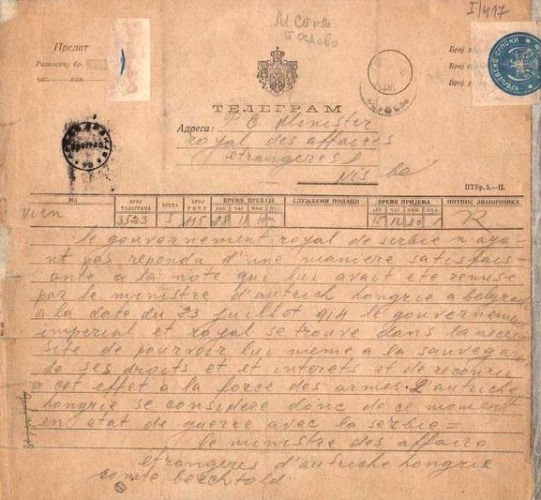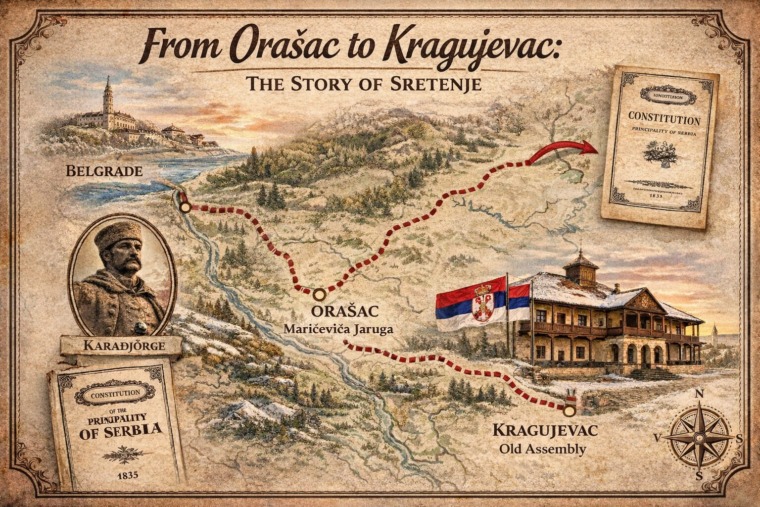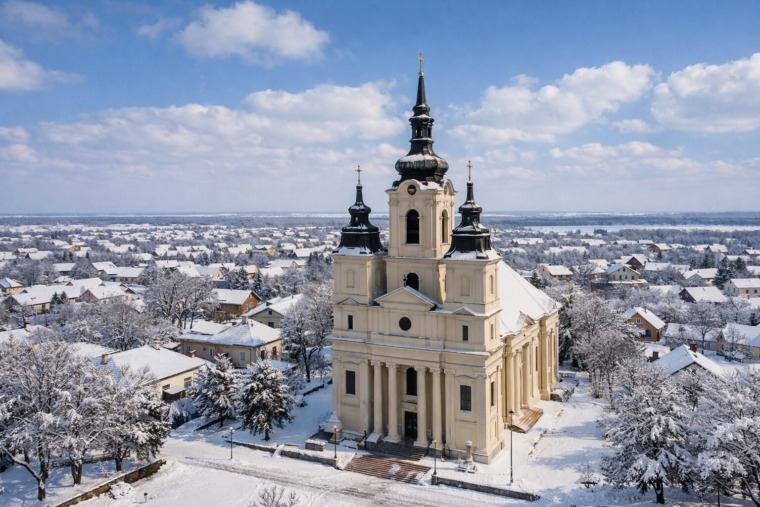

“Austria-Hungary has declared war on us. It’s the end of it. God will give us victory”, it was said by the Serbian Prime Minister Nikola Pašić while he was sitting in the garden of a hotel Orient in the city of Niš, where he was shown the Austro-Hungarian declaration of war on July 28, 1914. The following day, Prince-Regent Aleksandar I issued a manifesto in which he announced the upcoming war to ”his beloved and heroic Serbs”.
The declaration of war against Serbia came across Bucharest with regular mail in the form of an open telegram. Written in French (which was the official language at the time), it was handed over to Nikola Pašić who had withdrawn to Niš with the entire goverment the previous day. On July 28th, at one o’clock in the afternoon, in the garden of the Hotel “Orijent”, Nikola Pašić received a dispatch by which Austria-Hungary had declared war on Serbia.

The writer Ivo Ćipiko, who found himself in the city at that very moment, wrote: “Quiet, seemingly carefree, Pašić stood up after he finished his lunch. However, when I looked at him, it seemed to me that something unusual – which ocurred at that moment – was expressed in his drawn eyes. On the street, in front of the hotel, Pašić took the telegram out of his pocket and showed it to the French minister. It was a declaration of war. Later that day, Pašić read this telegram to the assembled citizens of Niš, and it is believed that he read it from the balcony of Banovina.”

Photo: www.archives.org.rs
This historic document is preserved in the Archive of Serbia as one of the most important written evidences.
The Monarchy did not waste time to attack Serbia, so, on the eve of the very day the war was declared, the first volleys of cannonfire were unleashed accross the Sava river in direction of the Serbian capital – Belgrade. The next day, Prince-Regent Aleksandar I Karađorđević addressed to the nation with the manifesto he had previously sent from Niš to “his beloved and heroic Serbs“:
“Our homeland Serbia is assaulted by a great evil. Austria-Hungary declared war on us. Now, all we have to do is to be united, and be heroes.” With these words, the Serbian heir to the throne and the future king of Serbs, Croats and Slovenes, began his address to the Serbian nation, in which he pointed out ‘‘that Serbia did everything to coexist with the neighboring Monarchy in peace – to no avail” for the Monarchy unfairly shifted the blame for the assassination at Sarajevo onto Serbia: “Such an accusation of an independent state for someone else’s fault, is unique in the history of Europe …”

“Heavyhearted and aware of all the dangers and difficulties” the crown-prince thus invites “his beloved and brave Serbs to gather under the Serbian flag with belief that they will prove themselves worthy of their glorious ancestors, as they did a year ago, and a year before.” Aleksandar I invited Serbs to unite in the country’s defense because “in our glorious past, distant as well as recent, there is much evidence that the Serbs, when united, can defeat much larger opponents.”
The memory of Miloš Obilić, a hero of the Battle of Kosovo, could not be omitted in yet another awakening of the Serbs’ bravery, for the Prince Regent Aleksandar I mentioned him at the end of this manifesto as an example of self-sacrifice for the homeland’s defense, facing the myriad arrogant enemy. “Serbs, defend your home and your Serbian kindred”: with these words the crown-prince ended this important historical manifesto and announced to Serbia, and to the rest of the world, the onset of a war that would turn into a large-scale global conflict.
 The article supported by The Office for Cooperation with Diaspora and Serbs in the Region.
The article supported by The Office for Cooperation with Diaspora and Serbs in the Region.
Related Articles


5 Little Things in Serbia That Travelers Never Forget
February 20, 2026
Interesting Facts About Sretenje You May Not Know
February 16, 2026






